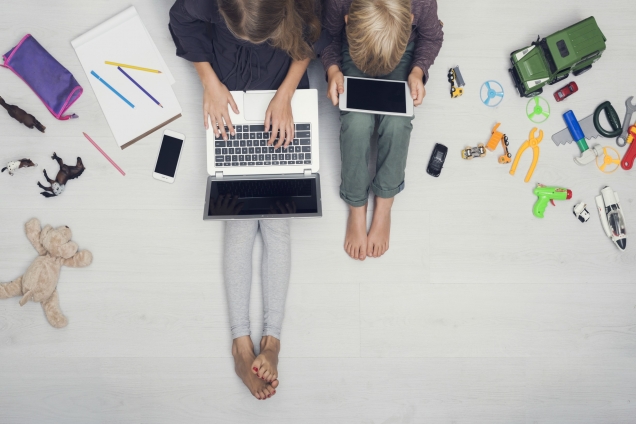
Queensland Health is urging parents to tune into its new mini documentary ‘Square Eyes’, in a bid to make future generations screen smart.
Health and Wellbeing Queensland Chief Executive Officer Robyn Littlewood, who appears in the documentary, said parents often underestimated the amount of time kids devoted to their devices—with obesity and poor sleep significant risks.
“We’re seeing a lot more kids on screens, for a lot more time than we think,” Dr Littlewood said.
“As soon as they’re home from school they might be on a screen—and they’re staying there. Sometimes for up to more than five hours and stretching well into the night.
“When kids are on screens, they don’t move. The question we have to ask ourselves is what is the screen replacing? Time from being active, time with friends…time with you?
“We know excessive screen time also goes hand in hand with mindless eating, which can lead to obesity and other chronic health issues down the track.
Dr Littlewood stressed awareness—not blame—was the key to tacking the issue.
“We know screen time is a mainstay of modern life, just like the advent of television for generations past. Change takes time and we understand the difficulty parents face.
“In our society we are so time-poor and we are juggling so many things. We are all trying do our best.
“As a mum of three teenage boys myself, I know how difficult it is, but I know I have to make sure I lead by example. That means keeping my own screen time in check because I know my kids are watching everything I do.
“Our kids can’t be what they can’t see.
“Behavioural change will take time – but as parents, it’s so important for us to be great role models for our kids.”
Gold Coast Community Child Health Paediatrician François Butel echoed Dr Littlewood’s call to action.
“Making sure kids have a balanced approach is the key. Try to avoid technology use that replaces physical activity, sleep or spending time with others,” Dr Butel said.
“Set the limits and engage your children in how this could look for them across the day.
“Do they want to have their screen time all in the afternoon or some before or after dinner?
“There’s no hard and fast rules—make it work for your family—just make sure you engage your children in the process, to empower them to make positive change.
“By doing this, you’ll instil accountability and help them understand the benefits behind limiting screen time.
“We need to do this to keep our kids—and future generations—healthy.”
The ‘Square Eyes’ documentary is online now https://www.healthier.qld.gov.au/healthy-families
Age-based screen time guidelines
- Kids aged 5-17 should have no more than two hours of screen time a day.
- Kids aged 2-5 should have no more than one hour of unrestrained (as in not sitting still) screen time a day – less is better. Sedentary screen time is not recommended.
- Children under 2 should have no screen time.



